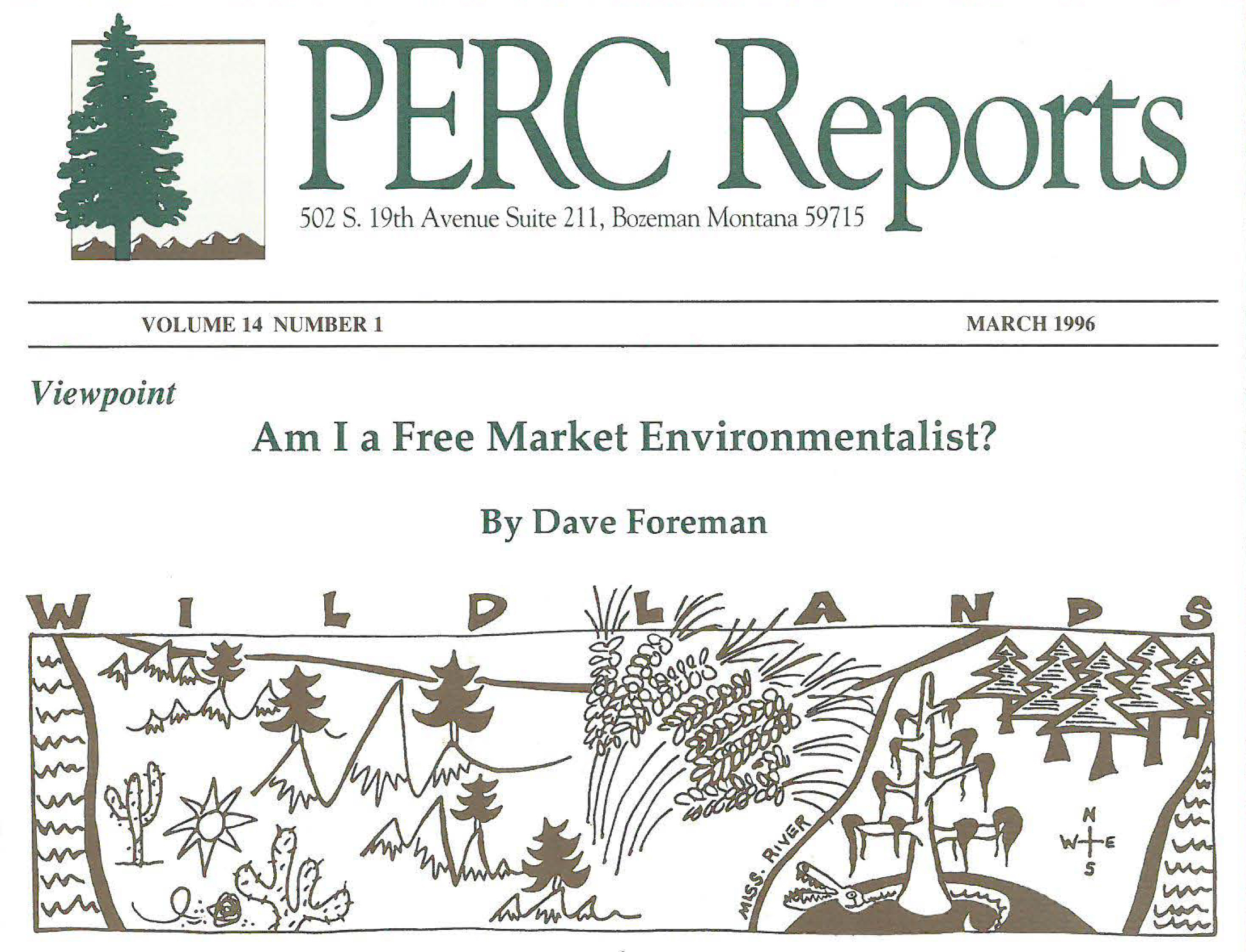
There’s been some controversy at PERC over my libertarian orthodoxy. So I’ve been asked to address the question, “Is Dave Foreman a free market environmentalist?”
No. First of all, I’m not an environmentalist. I’m a conservationist. Environmentalism is concerned with human health; conservation is about wild lands and wildlife. Of course, I’m concerned with human health (particularly my own, even if I do eat bloody steaks, smoke cigars, and drink too much), but Nature is what I love. Moreover, the word “environment” makes my stomach curl up and shiver as it does when someone sneaks tofu onto my plate. “Environment” is as far from “Nature” as “Relationship” is from “Love.”
…
I think that conservationists have relied too much on federal government law and regulation. Part of the reason is that many conservationists (and even more environmentalists) have come from an activist liberal background. There’s a problem? Pass a law! Another reason is that big business has been so thoroughly irresponsible. By their lack of land stewardship and good citizenship, extractive industries (logging, mining, grazing, and energy) have created a demand for federal government action.
It has also been easier to pass federal laws than to work out good conservation through the free market or through voluntary agreements. I’m happy to see this is changing and I’m happy to be part of that change.
I believe that in following Leopold’s Land Ethic we should try free market and voluntary solutions first, and federal government solutions only later.
…
In this real world of declining federal budgets, new sources of funding are needed for public lands and conservation programs. User-pays seems like a workable and ethical approach. Entrance fees to national parks should be raised, private concessionaires should pay a fair fee, and the money should stay with the park for management. There should be a national fee for wilderness area recreation, and it should be used for wilderness management and to acquire private inholdings and grazing permits. A national sales tax on backpacking, climbing, and river running equipment should also go into this fund. A tax on birdseed, binoculars, and field guides should help fund the Endangered Species Act.
So am I a free-market conservationist?
I found Dave Foreman’s essay interesting because his perspective does not fit neatly into one of the usual categories—environmentalist, conventional economist, libertarian, pro-industry, etc. Although this means that there are arguments that do not appear to be mutually consistent from the perspectives of any of these categories, it also means that the essay is a very nice one for stimulating real thought about the issues.


